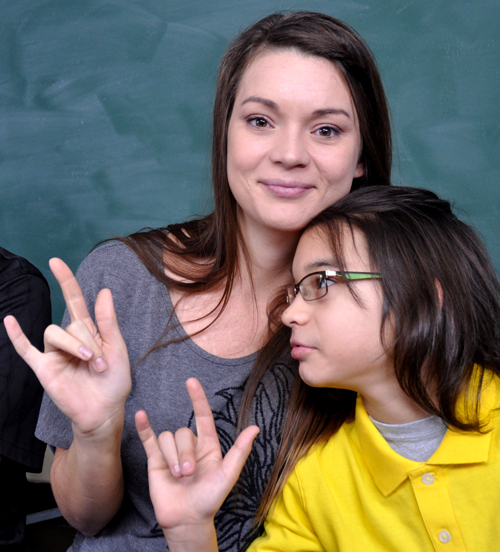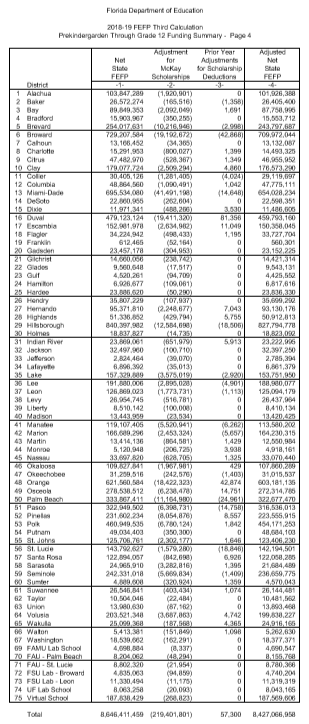
Editor’s note: While education choice misstatements flourished this year, one was especially egregious: the claim that Florida’s new family empowerment voucher was “unprecedented.” Step Up For Students’ special projects director Jon East revisits this claim and explains why it ranked as the redefinED team’s Myth of the Year.
As Florida lawmakers debated a new private school voucher for students from low-income and working-class families earlier this year, opponents depicted the program in stark, even apocalyptic, terms.
Ron Meyer, attorney for the Florida Education Association, the state’s largest teachers union, said “this could lead to the dismantling of the public school system as we’ve known it.”
Sen. Gary Farmer, a Broward Democrat, called it “the beginning of the final stage of a decades-long plan to privatize public education in Florida.”
Sen. Perry Thurston, a Broward Democrat, wrote that “Florida seems hellbent on sending its public schools into K-12 purgatory.”
At the root of the rhetoric was the claim that the Family Empowerment Scholarship (FES), which was signed into law by Gov. Ron DeSantis in May, was without precedent in Florida education. The scholarship was intended in large part to serve lower-income students who are being squeezed out of the 18-year-old Florida Tax Credit Scholarship, which has enrolled 108,570 schoolchildren this year, because corporate tax-credited contributions aren’t keeping up with student demand. But opponents argued that serving those students with direct-taxpayer-funded vouchers would push the state into entirely new education policy.
During floor debate, Sen. Daryl Rouson, a St. Petersburg Democrat, called FES a fundamental shift: “That fundamental shift is we’re moving away from a Constitutionally approved method of funding tax credit scholarships to using FEFP (the formula used to fund public schools) dollars and general revenue for private institutions.”
Those charges picked up steam as the scholarship bill moved through each legislative chamber, was signed into law and then began serving roughly 18,000 students this fall. Reporters and opinion writers occasionally mistook the assertions as fact, including an esteemed editorialist who wrote in the South Florida Sun-Sentinel in October that the scholarship is “the first time” that a school voucher will be paid “straight from the state treasury.”
But this is patently false.
The Family Empowerment Scholarship is neither the first nor the only direct-state-funded education voucher in the PreK-12 arena in Florida. It’s not even the only voucher funded directly through the Florida Education Finance Program (FEFP), which is the main operational fund for district public schools. As we described in a recent fact-checkED post, here are the others:
- The McKay Scholarship for students with learning disabilities. It was created two decades ago and last year served 30,695 students at a cost of $219.7 million. The students are tracked inside the FEFP from each school district in which they live, as is exhibited in this FEFP calculation sheet from 2018-19 (note the second column, which subtracts McKay dollars from each district).

- The Gardiner Scholarship for students with specifically named special needs. It was created in 2014 and served 11,917 students last year at a cost of $124.1 million. Gardiner is funded by a direct line-item appropriation (see line item 110 on page 28 of this year’s State Appropriations Act).
- Voluntary Pre-Kindergarten for 4-year-olds. This program was approved by voters in 2002 and took effect in 2005. In 2017-18, it served 133,870 students in private schools and day care centers at a cost of roughly $326.2 million. The VPK program is funded by a direct line-item appropriation (see line item 89 on page 20 of this year’s State Appropriations Act).
The reason this claim is worthy of redefinED’s Myth of the Year is not just that it persists but also that it is intended to disguise the degree to which the state’s public education landscape has shifted in just over a generation.
In 2017-18, 1.6 million – or 47 percent – of all preK-12 students in Florida chose something other than their assigned district public school. That included 292,001 in privately operated and publicly contracted charter schools, 133,870 in privately operated prekindergarten centers, and 149,400 in private schools with state scholarships.
Those programs exist only if parents choose them for their children, and both school districts and state legislators are responding to the explosive enrollment growth with more and varied options. The claim that FES is some type of legislative abnormality is designed to be misleading.


